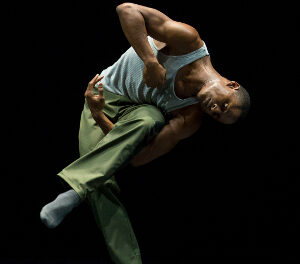Pianist Rebecca Wilt of UNCG presided over an evening of chamber music which was decidedly not “the usual suspects” in terms of genre (no piano trios or piano quartets, no string quartets, no solos with piano accompaniment) or in terms of the composers responsible (no Mozart, Beethoven, Schubert, Brahms). And mystifyingly, one night after a concert with ten in attendance, the Recital Hall was well-filled, though almost exclusively with students (the few adults present were certainly UNCG music faculty). My theory: attendance must have been required in some way (given that about two dozen made a hasty exit prior to the last piece on the program).
The evening began with Benjamin Britten’s Canticle III: Still Falls the Rain, setting a poem from 1940 by Edith Sitwell, evoking (very discreetly) the Battle of Britain by the Luftwaffe against England in that year and, more explicitly, the passion of Jesus. Britten’s musical language is entirely original though still tonal, and the scoring, novel, with a high tenor line accompanied by an obbligato horn that is often in its lowest register, and piano. Tenor Robert Bracey seemed born for this music, with a beautiful bright clear tone, an aristocratic bearing (in the best sense), and a pristine delivery of the difficult and evocative text. Wilt and hornist Abigail Pack were on a similarly high level. This was some of the best singing I have heard in quite some time. In a word: perfection.
Next up were the Two Rhapsodies (for oboe, viola and piano) by Charles Loeffler (1861-1935). Loeffler is an American composer who emigrated from Germany to the US at the age of 20 after having studied violin and composition at the Hochschule für Musik in Berlin. Loeffler’s style is French (he was anti-German due to the fact that his politically-active father died of a stroke while imprisoned for his activities), and the two Rhapsodies are a later arrangement of songs originally scored for voice, clarinet, viola and piano. Perhaps the music would be easier to follow with vocal line and sung text – in this setting the effect is one of vaguely formless cinematic music in which the visual referent is missing. Lovely, but hard to follow.
Aram Khachaturian (1903-78), a very successful Soviet-era composer from Armenia, is well-known in this country, particularly for his characterful piano music as well as for the famous “Sabre Dance” from his ballet, Gayane. His Trio for Clarinet, Violin and Piano (1932) is an early work, written while the composer was studying with Miaskovsky at the Moscow Conservatory, and the style is oddly place-less, with the clearest reference being a rather French style in the closing moderato, which seems to be a folksong setting, and timeless – one could easily imagine that the work was from decades later. Balance was a problem here, with the clarinet (Kelly Burke) and piano overdominating the violin (Marjorie Bagley).
Closing the evening was an extended work, the song cycle …to cast a shadow again by Eric Ewazen (b.1954). Wilt spoke at some length about Ewazen’s transition from serialism to a more accessible (and successful) style, due to a commission from the American Brass Quartet, which required “a tune,” and …to cast a shadow again (commissioned in 1991 by trumpeter Chris Gekker) is scored for the unusual combination of low voice (baritone), trumpet, and piano. It sets poetry by Katherine Gekker which is both specific in detail and not specific enough, in that one cannot gather from the poetry who the voice is that is speaking – a woman talking about a man, a man about a woman, a woman about a woman, or a man about a man. For love poetry, this is disturbingly sexless. Musically, the combination of trumpet (Mark Clodfelter) and piano was enough to essentially drown out what baritone Robert Wells had to say, and Wells, perhaps not surprisingly, seemed to take no joy at all in what he was imparting, nor sorrow – just a rather disgruntled air throughout. Ewazen might have done better to write a little less for the trumpet, which is omnipresent, and Clodfelter, alas, did not make the most of the writing. He seemed to focus not on playing gestures, or motives, or music, but was overly and obviously too concerned with technical issues, not finishing a thought before preparing for the next one. More globally, the cycle’s scoring was so ineffective that it made one wonder if it really had been scored for a male voice (it was), since the part is so low that it barely carries. All in all, not a convincing introduction to Ewazen, nor a piece that would repay repeated listenings. A pity.
UNCG School of Music, take note: it would be valuable for the programs to have both dates of composition and some sort of note to introduce the pieces. This program had neither.
There are oodles of offerings at UNCG, in all performing arts disciplines. Check them out in our calendar!











